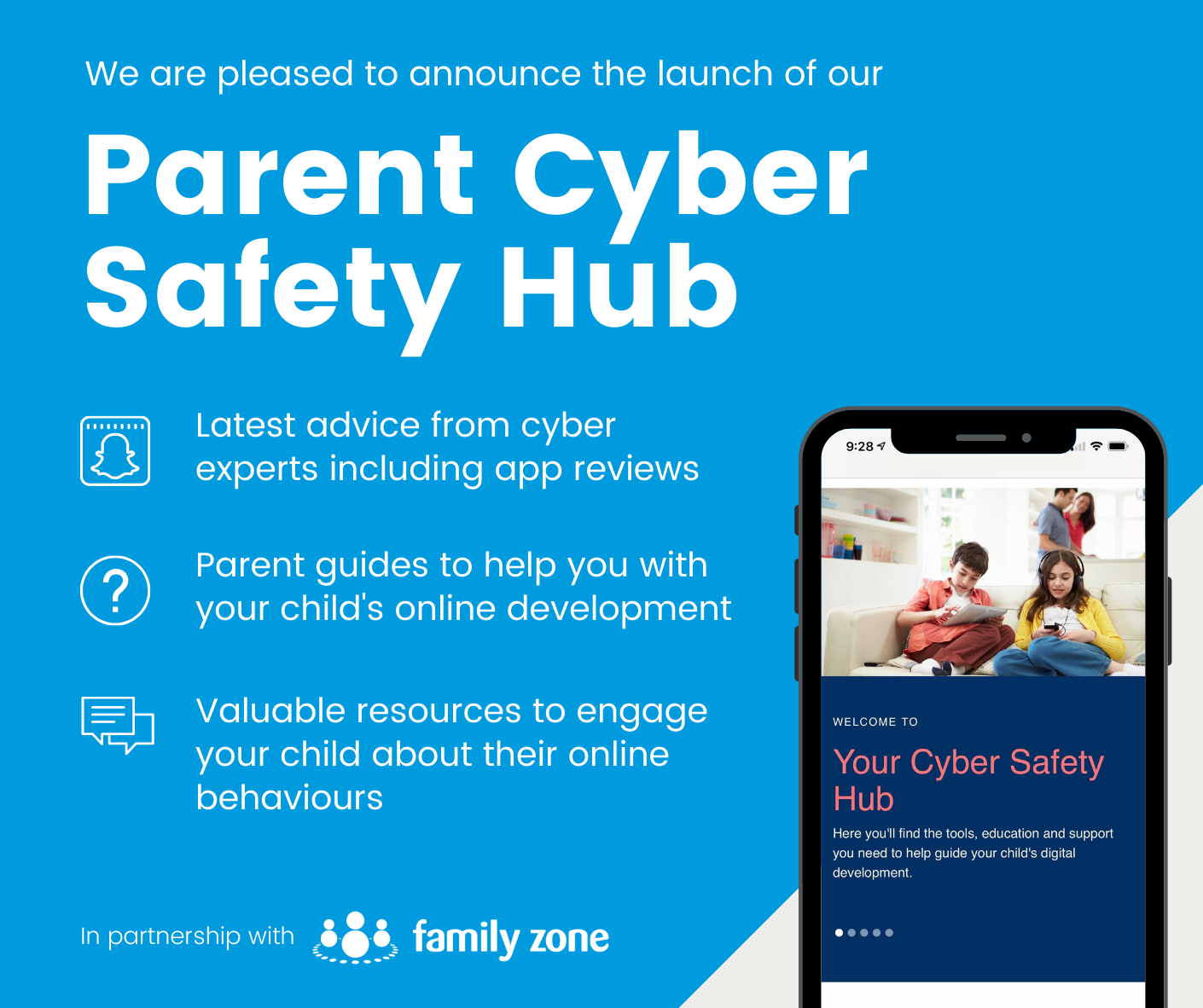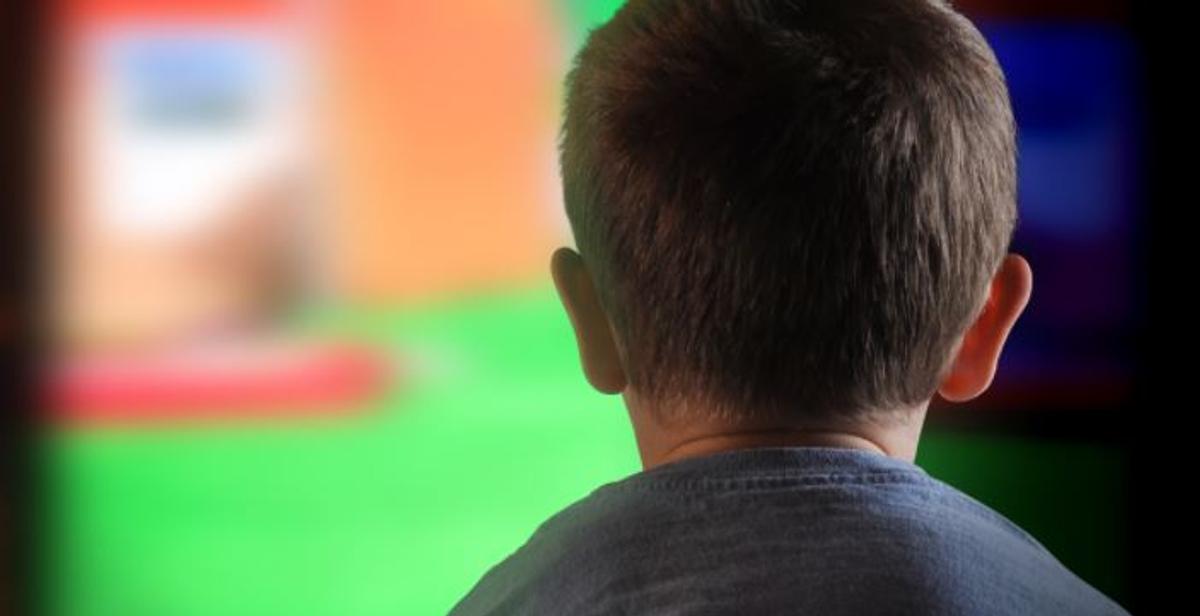Cyber Safety

Check out our Cyber Safety Hub
We are delighted to introduce you to a new resource made available to you through our partnership with Family Zone - our new school Cyber Safety Hub.
As you may already be aware, our partnership provides your family with access to the Family Zone tools to use at home with your children if you wish. The purpose of the Cyber Safety Hub is to complement those tools with practical guidance and information to further support you in engaging with your children in their digital development. These tools and resources also allow the school and parent body to work together on creating a holistic approach to guiding each student's online journey.
You can access the Cyber Safety Hub using the link below:
https://johnxxiii.cybersafetyhub.com.au/
About the Parent Cyber Safety Hub
The Cyber Safety Hub includes resources to help your family better understand the different Family Zone tools available to you and how to use them, plus access to regular cyber safety events to help you stay informed about the latest digital trends.
Also, the Cyber Safety Hub provides expert advice from leading cyber experts, ySafe, on the most pertinent issues and frequently asked questions around platforms like TikTok, Fortnite, Instagram, and more. There are app reviews with age and safety recommendations, along with a range of guides to help ensure healthy boundaries around screen-time & gaming, plus step-by-step instructions for using parental controls and filtering out inappropriate content.
We are very excited to be able to offer you this level of expertise and support. We look forward to working closely with you as we develop the cyber safety conversation within our school community.
Your child has less privacy online than kids in the US, UK & Ireland
Aussie kids are sitting ducks for targeted online ads and privacy pirates, and will remain so until we enact protective legislation.
That’s the message being sent by Reset Australia, in its campaign to create a national data code for children - as other developed nations have already done.
In the US, there’s COPPA, the Childrens’ Online Privacy Protection Act. Enacted way back in 1998, it bans tech companies from collecting data from under-13s. (Figuring out with any accuracy who IS under 13 is another story …)
In the UK, The Age Appropriate Design Code, which came into effect in September 2020, requires that kids enjoy a built-in baseline of data protection whenever they download a new app, game or visit a website.
It represents an entirely new approach in online protection for kids: “Privacy by Design” - essentially requiring companies to bake in protection for kids when developing new products.
In Ireland, a new initiative called The Fundamentals is a set of 14 measures designed to protect children whenever they access services, online or off. Among them, that tech companies are required to obtain clear-cut consent from under-16s, delivered in child-friendly language.
Here in Australia, no such protections exist. But moves by Reset Australia, a non-profit that describes itself as "working to counter digital threats to democracy across the world," is aiming to change all that.
The group is currently campaigning in favour of a data code similar to the UK’s that would stop profiling of under-18s and limit the use of personal data to adult advertising.
In a recent study, Reset created a fake Facebook account under the name Ozzie News Network. It used the account to test how easy it would be to advertise alcohol, vaping products, extreme weight loss and online dating to kids Facebook had identified as interested in alcohol, tobacco and gambling.
Turned out it was very easy indeed.
Facebook maintains it forbids inappropriate products to under-18s - but the researchers had no trouble advertising
- cocktail recipe to 52,000 teenage children Facebook identified as interested in alcohol
- vape pen to 1,000 identified as interested in smoking or vaping
They were able to identify another 14,000 of these as interested in gambling and others in:
- extreme weight loss
- fast foods
- online dating
In total, Reset's fake account was offered access to about 740,000 teenage Australian children.
In another recent report, Reset Australia has shown how little our kids actually understand when they tick the “I accept” button on a new app or game. Of particular concern was the use of “nudges” - the “dark patterns” that influence children to agree to terms and conditions they don’t understand and have probably not read - including dodgy data harvesting.
The study found nine out of 10 of the terms and conditions they looked at required a tertiary degree to understand.
Up to now, Australia has relied on tech companies to self-regulate. But the evidence, according to Reset researcher Dr. Rys Farthing, is clear: “When it comes to personal data, but particularly when it comes to children and young people’s data … self-regulation has failed.”
Other interested groups agree - including Unicef Australia, YMCA and The Australian Child Rights Taskforce.
The Office of the eSafety Commissioner has also thrown its weight in support of a “safety by design” approach - prioritising prevention of privacy risks ahead of penalties for companies that breach the rules.
Reference: https://www.familyzone.com/anz/families/blog/your-child-has-less-privacy-online-than-us-uk-irelanc



